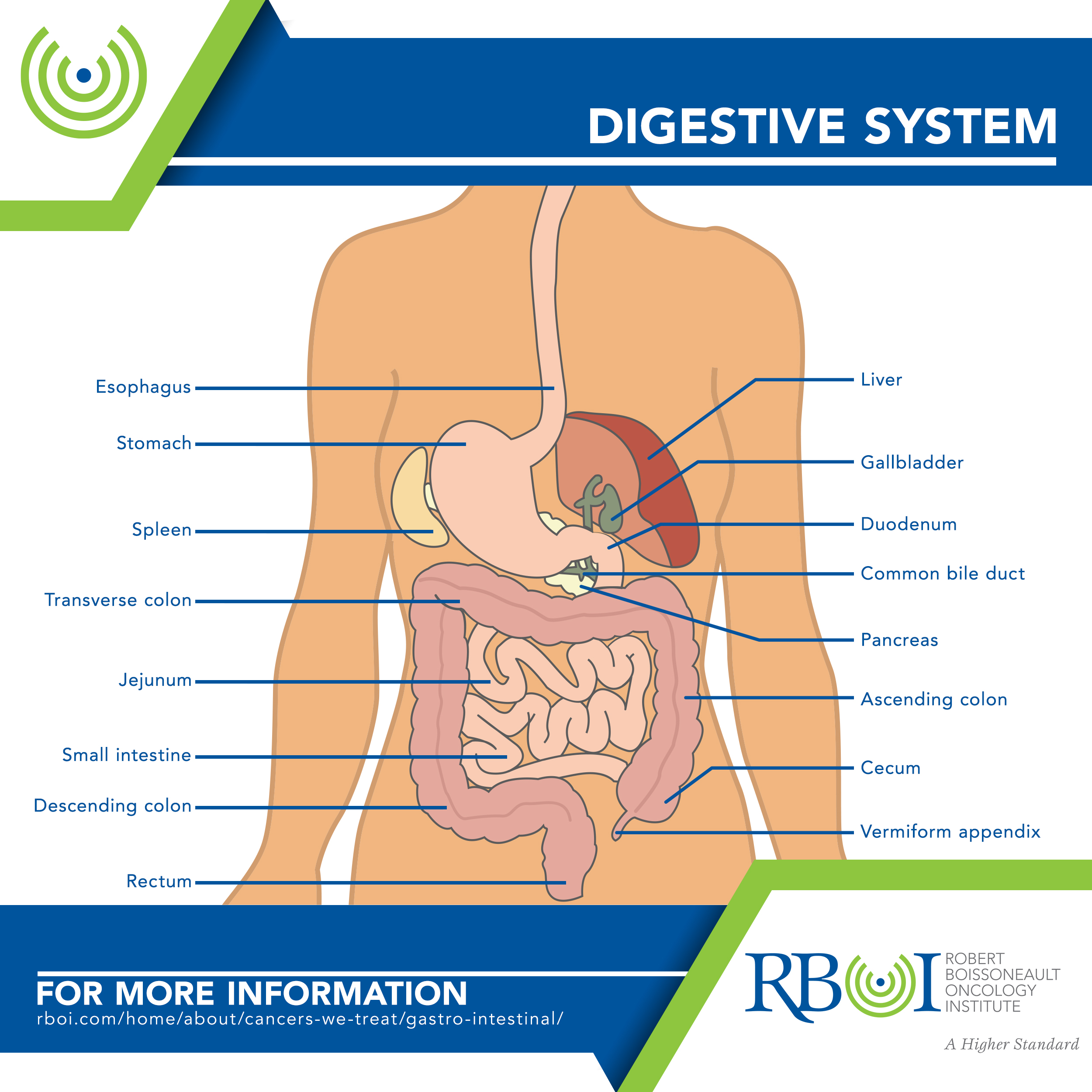Stomach Cancer
Stomach (also called gastric) cancers tend to develop slowly over many years. Pre-cancerous changes often occur in the inner lining (mucosa) of the stomach and rarely cause symptoms. Cancers starting in different sections of the stomach may cause different symptoms and tend to have different outcomes.
-
Forms of stomach cancer
Adenocarcinoma is the most common form of stomach cancer, occurring in about 90 to 95 percent of cases.
Lymphoma are cancers of the immune system tissue that are sometimes found in the wall of the stomach, but this type of stomach cancer is rare.
Gastrointestinal stromal tumor (GIST) is a rare tumor that can occur anywhere in the digestive tract but usually occurs in the stomach.
Carcinoid (also called neuroendocrine) tumors are rare and can start in hormone-making cells of the stomach.
Very rare types of stomach cancer include squamous cell carcinoma, small cell carcinoma, and leiomyosarcoma
-
Risk factors for stomach cancer
Age, Bacteria, Common variable immune deficiency (CVID), Diet, Epstein-Barr virus, Family history/genetics, Gender, Obesity, Occupational exposure, Previous surgery or health conditions, Race/ethnicity, Some types of stomach polyps, Tobacco, Type A blood
Age — Stomach cancer occurs most commonly in people older than 55. Most people diagnosed with stomach cancer are in their 60s and 70s.
Bacteria — Helicobacter pylori (H. pylori) causes stomach inflammation and ulcers and is also considered one of the main causes of stomach cancer. H pylori infection is also linked to some types of lymphoma of the stomach. Testing for H. pylori is recommended if you have had a parent, sibling, or child who has been diagnosed with stomach cancer or an H. pylori infection. If found, the infection can be treated with antibiotics.
Common variable immune deficiency (CVID) — People with CVID have an increased risk of gastric lymphoma and stomach cancer.
Diet — A high-salt diet has been linked to an increased risk of stomach cancer. This includes foods preserved by drying, smoking, salting, or pickling and foods high in added salt. Eating fresh fruits and vegetables may help lower the risk.
Epstein-Barr virus — This virus is found in the cancer cells of about 5 to 10 percent of people with stomach cancer, usually a type that is slower growing, with a lower tendency to spread. However, it isn’t yet clear if this virus actually causes stomach cancer.
Family history/genetics — People who have a parent, child, or sibling who has had stomach cancer have a higher risk of the disease. Certain inherited genetic disorders, such as hereditary diffuse gastric cancer, Lynch syndrome, hereditary breast and ovarian cancer (HBOC), Li-Fraumeni syndrome, Peutz-Jeghers syndrome, and familial adenomatous polyposis (FAP) may also increase the risk of stomach cancer.
Gender — Men are twice as likely to develop stomach cancer as women.
Obesity — Excess body weight increases a man’s risk of developing stomach cancer. It is not clear whether obesity increases a woman’s risk of stomach cancer.
Occupational exposure — Workers in the coal, metal, and rubber industries seem to have a higher risk of getting stomach cancer.
Previous surgery or health conditions — People who have had stomach surgery, pernicious anemia, or achlorhydria have a higher risk of stomach cancer.
Race/ethnicity — In the US, stomach cancer is more common in Hispanic Americans, African Americans, Native Americans, and Asian/Pacific Islanders than it is in non-Hispanic whites.
Some types of stomach polyps — Polyps are non-cancerous growths on the lining of the stomach. One type of polyp, adenomatous polyps or adenomas, sometimes develops into cancer.
Tobacco — Smoking increases stomach cancer risk, particularly for cancers of the upper portion of the stomach near the esophagus. The rate of stomach cancer is about doubled in smokers. Quitting tobacco lowers stomach cancer risk over time.
Type A blood — For unknown reasons, people with type A blood have a higher risk of getting stomach cancer.
-
Symptoms of stomach cancer
Indigestion or heartburn
A sense of fullness in the upper abdomen after eating a small meal
Pain or discomfort in the abdomen, usually above the navel
Nausea and vomiting, particularly vomiting up solid food shortly after eating
Sensation of food getting stuck in the throat while eating
Diarrhea or constipation
Bloating of the stomach after meals
Loss of appetite
-
Symptoms of advanced stomach cancer
Weakness and fatigue; anemia
Vomiting blood or having blood in the stool
Unexplained weight loss
Only about 1 in 5 stomach cancers in the US is found at an early stage, before it has spread to other parts of the body. This is because symptoms often do not appear until the disease is advanced. Most symptoms are more likely to have causes other than cancer, such as an ulcer or stomach virus.
-
How is stomach cancer treated with radiation?
External-beam radiation therapy (EBRT), delivered from outside the body, is the type of radiation therapy used most often to treat stomach cancer. Often, special types of external beam radiation, such three-dimensional conformal radiation therapy (3D-CRT) and intensity modulated radiation therapy (IMRT) are used, to limit damage to nearby normal tissues.
Radiation may be used before surgery (and with chemotherapy) to try to shrink the cancer and make it easier to remove.
Radiation may be used after surgery (and with chemotherapy) to try to kill any areas of cancer cells that may have been left behind but are too small to see.
Radiation may be used as palliative therapy to slow tumor growth and ease the symptoms of advanced stomach cancer, such as pain, bleeding, and eating problems.

Click here to learn more about RBOI’s radiation treatment options
Click here to watch a walk-through of what is involved in radiation treatment at RBOI
More extensive information about stomach and other cancers may be found at these sites:
American Cancer Society: Cancer.org
American Society of Clinical Oncology: Cancer.net
National Cancer Institute: Cancer.gov
